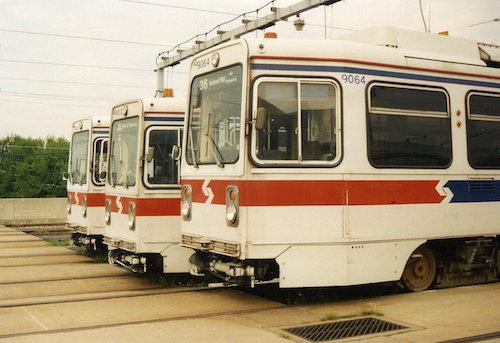Thousands in Philadelphia Without Ride to Work or School

By Olivia Grady
The Transit Workers Union Local 234 is striking for its second day after failing to reach a contract agreement with the Southeastern Pennsylvania Transportation Authority (SEPTA) on October 31st.
The union would not accept healthcare hikes due to the Patient Protection and Affordable Care Act (Obamacare) that would have boosted the contributions of workers. Premiums on some health insurance plans in Pennsylvania will rise about 33 percent.
Union leaders also disliked the $50,000 pension cap for workers because managers’ pensions were not capped. The union further wanted longer breaks between routes and shifts; workers receive nine hours of free time between shifts.
SEPTA argued that it doesn’t have the money to pay for the current pension benefits, much less increased benefits. It added that the workers’ current healthcare plan triggers the Obamacare “Cadillac Tax,” which will impose a 40 percent excise tax. Workers also have one of the best healthcare plans, and they pay only $46 per month for it.
The result of the strike has been almost 4,700 workers on strike, and buses, trolleys, and subways have been shut down. Almost 900,000 rides on public transit are provided each day, and 60,000 riders are public, private and charter school students.
The lack of public transportation hurts the economy by not helping people get to work. The longer commute also makes it harder for children to get to school, and seniors suffer disproportionately.
Rail lines to the suburbs however are operating, but not as quickly. There have been an increased number of passengers, and there were some pickets blocking the facilities until SEPTA got an injunction.
Concerns are that the strike might continue through Election Day, making it difficult for citizens to vote:
“We’ve always had difficulty, on a good day, to be able to have enough support to move people to polling places,” City Council President Darrell Clarke told PhillyVoice.com. “So if there is not public transportation we will clearly have a problem.”
SEPTA however released a statement on November 1st detailing its plan for Election Day if the strike persists:
We are hopeful that a tentative agreement will be reached before Election Day. If we foresee an agreement will not come to pass, SEPTA intends to seek to enjoin the strike for November 8th to ensure that the strike does not prevent any voters from getting to the polls and exercising their right to vote.
President Obama’s healthcare plan is not surprisingly causing the breakdown in the discussions between the union and SEPTA. TWU however supported President Obama and Democrats who wrote and voted for the law. Not one Republican voted for the bill.
In 2008, TWU endorsed President Obama, and TWU has given over 90 percent of its political donations to Democrat candidates. It has even contributed to Representative Charlie Rangel (D-NY), the sponsor of Obamacare, every election cycle since the bill was passed.
TWU also endorsed Hillary Clinton this year despite her support for and desire to expand Obamacare. And, it has spent over 2 million during this election year alone. 95 percent of the funding has gone to Democrats.
Unions though continue to support Democrats despite the fact that all Americans, especially union workers, are not helped by liberal policies, like Obamacare.





